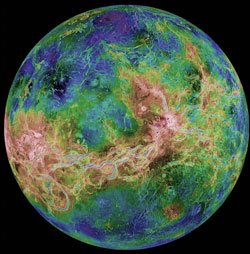101 evidences for a young age of the earth and the universe
by Don Batten
Published: 4 June 2009(GMT+10)
 There are many categories of evidence for the age of the earth and the cosmos that indicate they are much younger than is generally asserted today.
There are many categories of evidence for the age of the earth and the cosmos that indicate they are much younger than is generally asserted today.
Can science prove the age of the earth?
No scientific method can prove the age of the earth and the universe, and that includes the ones we have listed here. Although age indicators are called ‘clocks’ they aren’t, because all ages result from calculations that necessarily involve making assumptions about the past. Always the starting time of the ‘clock’ has to be assumed as well as the way in which the speed of the clock has varied over time. Further, it has to be assumed that the clock was never disturbed.
There is no independent natural clock against which those assumptions can be tested. For example, the amount of cratering on the moon, based on currently observed cratering rates, would suggest that the moon is quite old. However, to draw this conclusion we have to assume that the rate of cratering has been the same in the past as it is now. And there are now good reasons for thinking that it might have been quite intense in the past, in which case the craters do not indicate an old age at all (see below).
No scientific method canprove the age of the earth or the universe, and that includes the ones we have listed here.
Ages of millions of years are all calculated by assuming the rates of change of processes in the past were the same as we observe today—called the principle of uniformitarianism. If the age calculated from such assumptions disagrees with what they think the age should be, they conclude that their assumptions did not apply in this case, and adjust them accordingly. If the calculated result gives an acceptable age, the investigators publish it.
Examples of young ages listed here are also obtained by applying the same principle of uniformitarianism. Long-age proponents will dismiss this sort of evidence for a young age of the earth by arguing that the assumptions about the past do not apply in these cases. In other words, age is not really a matter of scientific observation but an argument about our assumptions about the unobserved past.
The assumptions behind the evidences presented here cannot be proved, but the fact that such a wide range of different phenomena all suggest much younger ages than are currently generally accepted, provides a strong case for questioning those accepted ages (13.77 billion years for the universe and 4.54 billion years for the solar system).
Also, a number of the evidences, rather than giving any estimate of age, challenge the assumption of slow-and-gradual uniformitarianism, upon which all deep-time dating methods depend.

0 Comments